Local elections in Almada: the main actress in the communist downfall seeks a third term divorced from the PSD

Fewer than 500 votes were enough to halt the PCP's 41-year run, and not even a single "star" managed the turnaround in 2021. After seven years, Inês de Medeiros has lost the PSD's support. If she wins, who will support her?
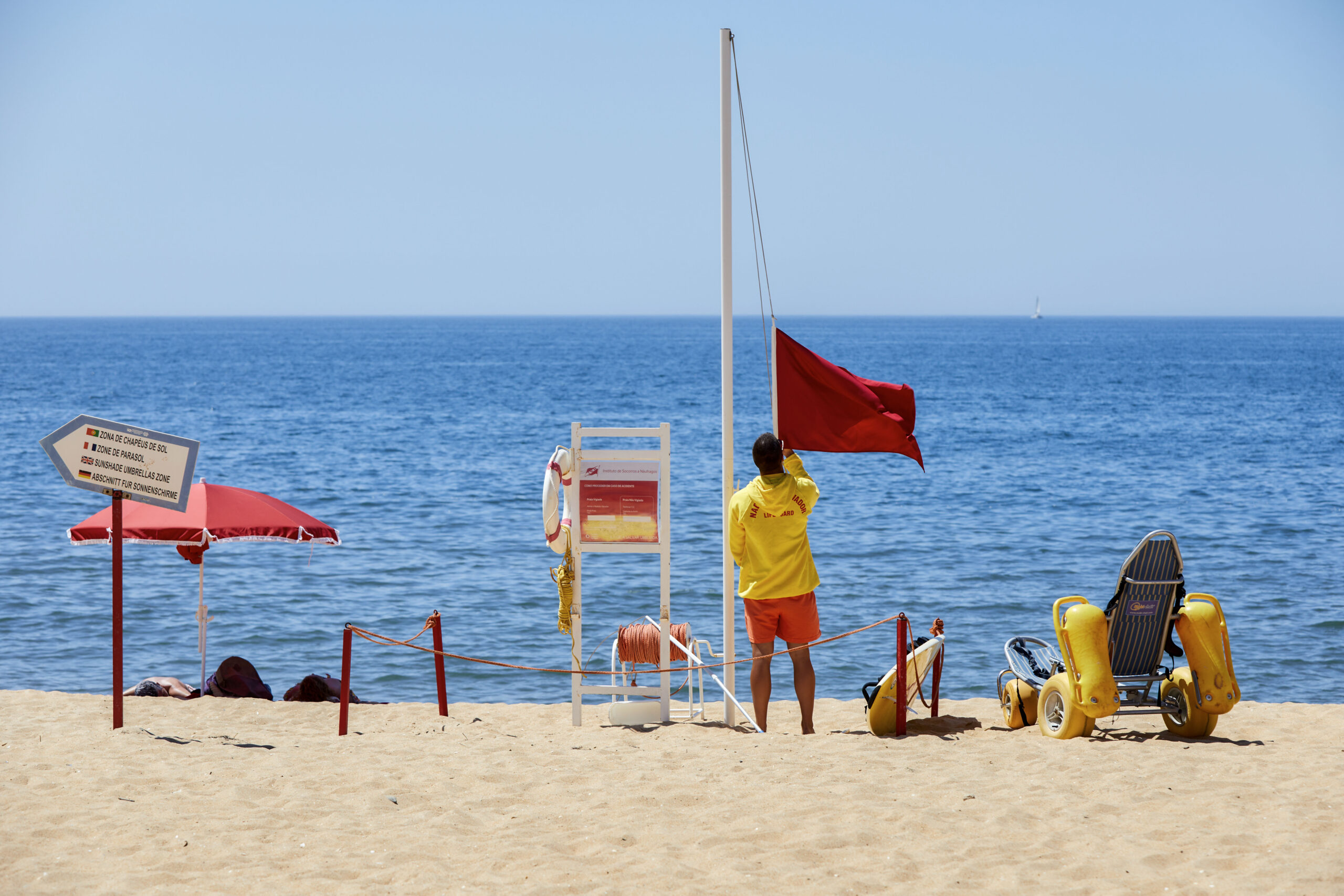
It already had a prominent place in the ship repair industry with the deepest dry port in Europe, it was about to receive the urban project known as "Manhattan of Cacilhas" with a skyscraper practically the height of the Eiffel Tower and Christ the King, there was already thought of a rehabilitation in the image of Parque das Nações with a tunnel under the river connecting Almada and Lisbon and the most recent promise is the rehabilitation within Parque Cidades do Tejo .
Lisnave, on the Margueira lands, keeps the industrial Almada riverfront prominent on the skyline, a territory once again awaiting the fulfillment of its promised rehabilitation, from Trafaria , where the metro will arrive in 2029 , to the vast acres of Lisnave land, neighboring the Alfeite Arsenal. In between, Cais do Ginjal, closed to traffic for months for security reasons, is where the construction of a luxury housing development and a hotel is stalled . From this industrialization, which began in the 19th century , a left-wing force grew, which, from 1976 onward, formed the gateway to the "red bastion" on the left bank of the Tagus.
Almada, which will mark a century next year since the 1926 revolution pushed it from the Lisbon district to the Setúbal district , moved further to the right in 2017, when the Socialist Party (PS) broke 41-year communist rule by a margin of less than 500 votes. The result was a surprise, admitted on the night of the municipal elections by the elected president, Inês de Saint-Maurice Esteves de Medeiros Victorino de Almeida, a Vienna-born actress and director who arrived in Portugal 50 years ago, and whose political experience began in Parliament during José Sócrates' second government, just eight years earlier .
Validating the Socialist conquest of this Communist stronghold required three recounts in the parish of Caparica . The candidacy of Joaquim Judas, who accepted the role of succeeding Maria Emília Sousa in 2013 and, at the end of his first term, lost the municipality, which had never yet seen another party affiliation, wasn't the only one chilling the Communist headquarters of Soeiro Pereira Gomes.
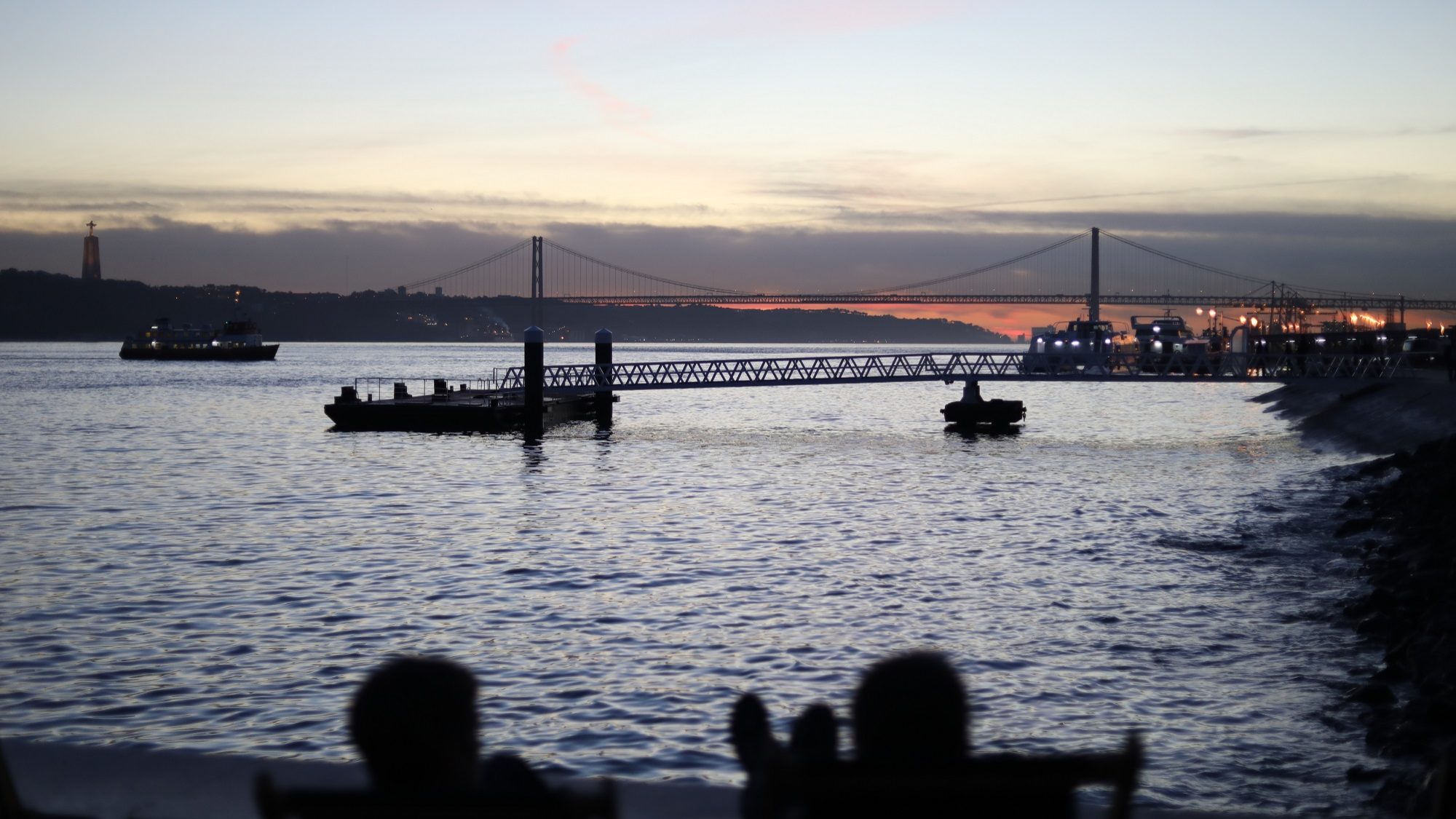
On the Setúbal Peninsula, Alcochete and Barreiro also fell to the PS , in a pink offensive that also decapitalized the party in Alentejo, where the socialists took Alandroal, Barrancos, Beja, Castro Verde (which, like Almada, had been communist since 1976), and Moura. Additionally, they lost Constância, in the Ribatejo region.
The narrow victory in Almada was celebrated late into the night by Medeiros's supporters. Among the more than 65,000 voters who went to the polls that day in 2017, the Socialist Party (PS) had 413 more votes.
The surprise was widespread, but there were those, like Left Bloc member Joana Mortágua , who could already hear the wind of change before the polls opened. " We felt a desire for change, for new ideas on the streets. Many people said that Almada was stagnant and wasn't keeping up with the signs of development in Lisbon, right next door." Mortágua's rise in the vote compared to 2013 was equivalent to a drop in the CDU's share of the vote, and earned the Left Bloc a councilwoman. However, it didn't guarantee a 4-4 tiebreaker between the other two parties that formed the "contraption" that had governed the country since 2015, as the PSD had elected two councilwomen in what was the last election under the party leadership of Pedro Passos Coelho – the worst municipal result in the party's history.
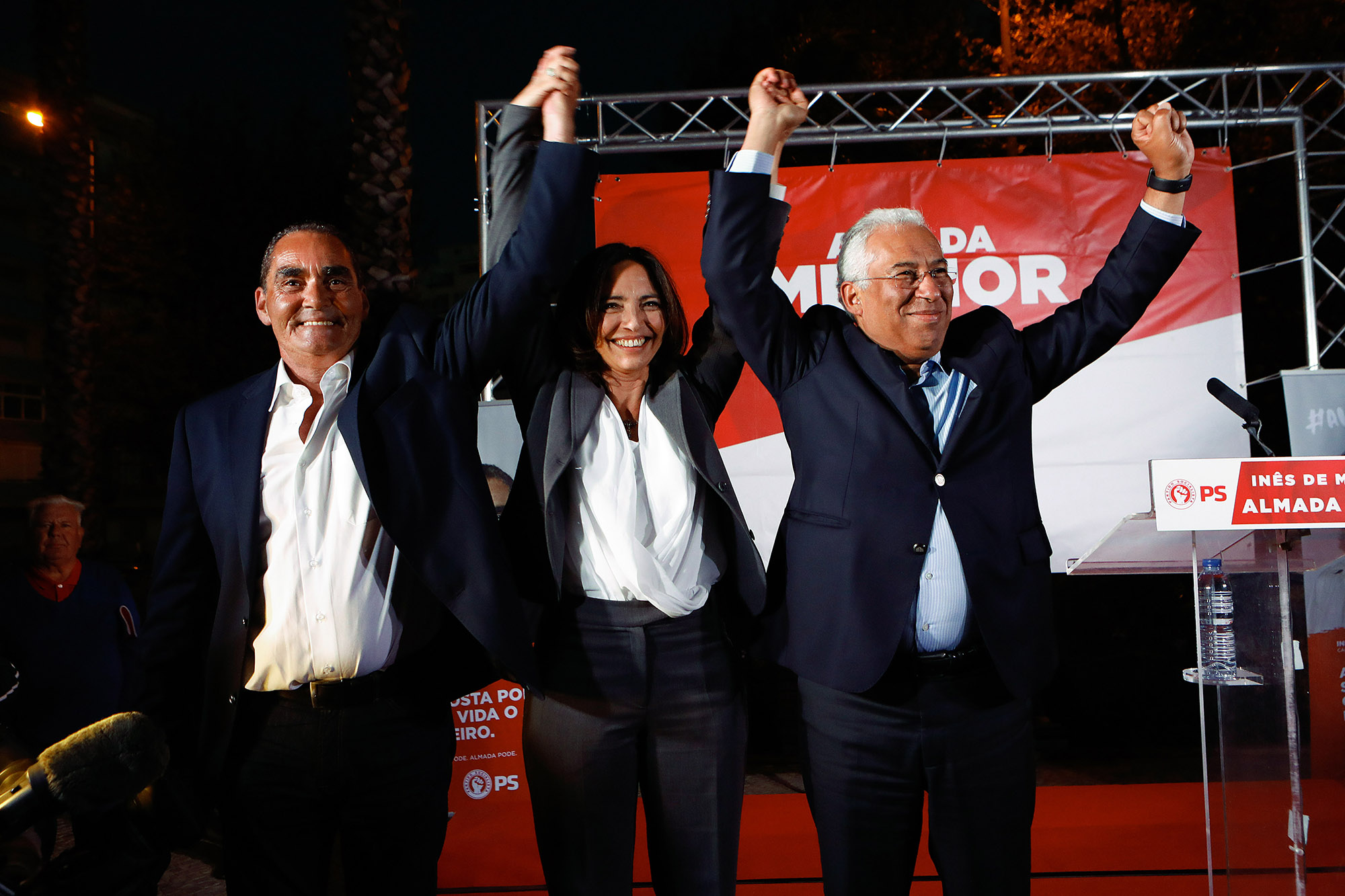
" At a certain point in the campaign, we realized we could have a good result. But the CDU had an absolute majority. And this was a municipality with a high abstention rate," recalled Inês de Medeiros. "It was difficult to know if we could win." But they did, in what some pointed out as a side effect of the "contraption," with Jerónimo de Sousa feeling the bear hug on a night unforgettable for António Costa , secretary-general of the PS and prime minister, who hailed the country as "the greatest electoral victory in the history of the PS."
Inês de Medeiros did not rule out negotiations on the right , despite the success story of the national partnership between the PS, CDU and Bloco de Esquerda, and the PSD having as its leader the man who warned the country about the coming of the devil , due to the “contraption” budgetary policy.
We have the greatest difficulty in figuring out how this will work over the next few years. We're faced with a problem.
It was with the Social Democrats that Medeiros secured immediate stability and, in one of her first public appearances, before an audience of workers with historical ties to the PCP, the mayor began by reassuring the audience: she would not be the devil .
The winds to the left were not in our favor. "We have the greatest difficulty in figuring out how this will work over the next few years. We're facing a problem," Joaquim Judas, who served only one term in government, told RTP after presiding over the Seixal Municipal Assembly between 2005 and 2013.
Gone was the glory of Maria Emília Sousa , awarded the Order of Prince Henry in 1998, president of the Almada Parish Council in 1979, councillor between 1983 and 1986 under the governance of former Cova da Piedade footballer José Martins Vieira, and then president until 2013, when the law on term limits barred her from this position.
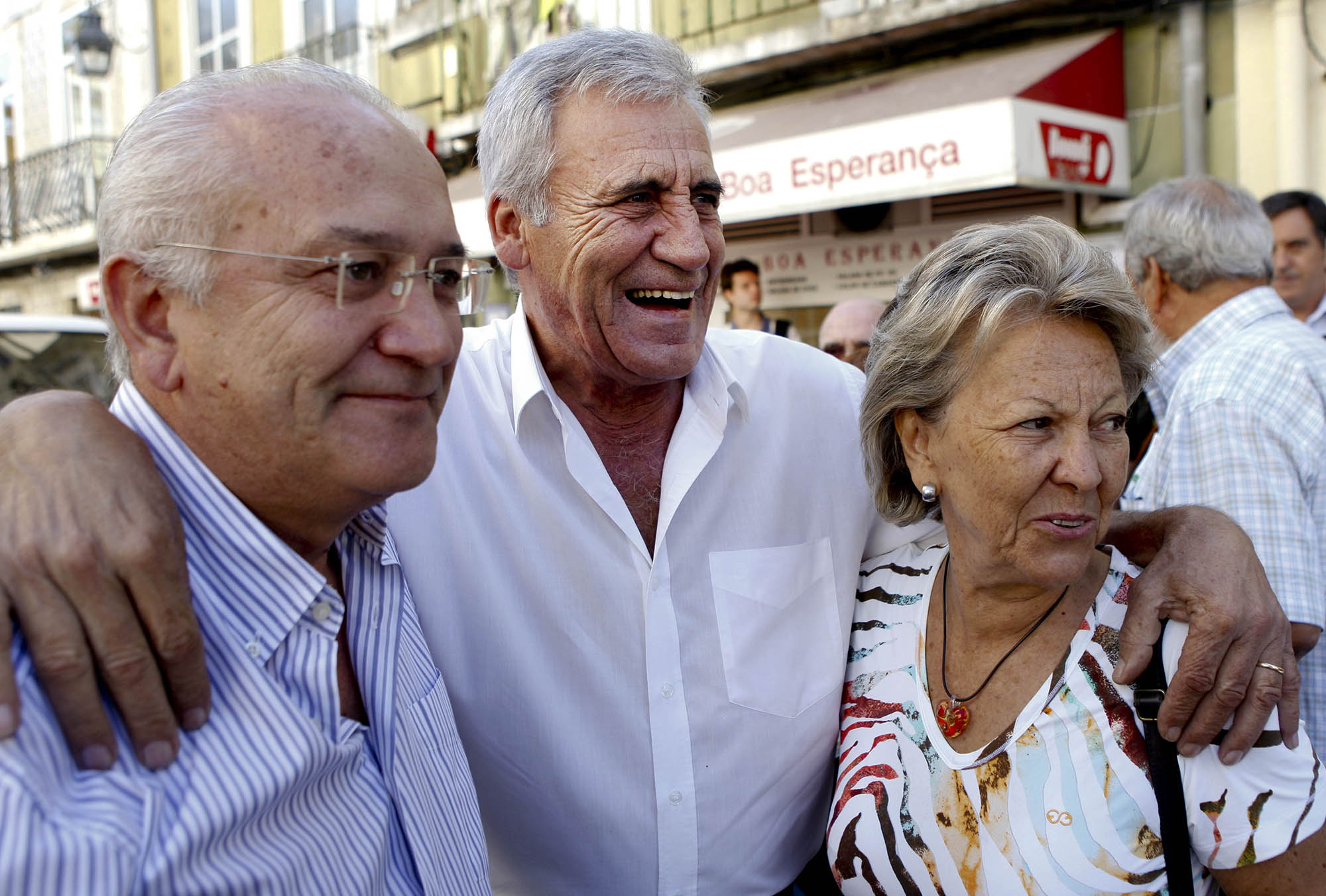
In 2021, with the “contraption” already buried after the 2019 legislative elections , the CDU sought strength in the industrial belt of the Setúbal Peninsula and trusted in the strength of Maria das Dores Meira, who immediately warned: “ I don't think an agreement with the PS makes sense , because if it's to be done just to have the majority of votes, I'd rather do it with any other party”.
That year, António Costa made a trip to Almada (in several other municipalities, the PS deputy secretary-general, José Luís Carneiro, represented the party) and, as he did throughout the country, he pushed the Recovery and Resilience Plan (RRP) to the limit. Almada, he said, "was the first municipality in the country to present its local housing strategy to address the needs of families there. Now, with the opportunities afforded by the new funds, Almada can go even further and is therefore already reviewing its local housing strategy to accommodate more families than initially anticipated." The truth is that the housing crisis has deepened across the country, and ahead of the October 12th municipal elections, Almada is no exception, facing a serious problem of illegal construction in Penajóia , something the mayor makes no secret of.
There are a number of situations that I can't understand how they've dragged on for so long. It's not just the situation in the so-called shantytowns, because the PER [Special Rehousing Program]'s primary mission was to eliminate shantytowns. It's ended practically everywhere in the country, but it hasn't ended on the south bank. It hasn't ended in Almada.
In an interview with ECO/Local Online in March, Inês de Medeiros highlighted the communist legacy: " It's a problem that cuts across the Setúbal Peninsula and a type of municipal government. There are a number of situations that I can't understand how they've dragged on for so long. It's not just the situation in the so-called shantytowns, because the PER [Special Rehousing Program]'s primary mission was to eliminate shantytowns. It's ended practically everywhere in the country, but it hasn't ended on the south bank. It hasn't ended in Almada."
Like other incumbent candidates running for re-election, Medeiros's housing is under attack . Reflecting this, this year 's CDS candidate , Ana Clara Birrento, says that "Almada is perhaps the municipality in the Lisbon Metropolitan Area that has seen one of the largest illegal neighborhoods grow exponentially and rapidly . We've heard that it's impossible to speak to the Institute of Housing and Urban Rehabilitation [IHRU], which owns the land, but a mayor can't just look at the problems without solving them."
On the left, the coalition between Livre and Bloco de Esquerda , led by singer Sérgio Lourosa Alves, also highlights the housing problem , saying that the municipality "has been governed since 2017 by a PS/PSD executive that has failed to respond to social, territorial, and population challenges and has succumbed to real estate speculation, the degradation of public services, and backroom politics." In statements to Lusa, the coalition criticizes "empty promises from eight years of PS and PSD and the threat of the rise of the far right."
Veteran Dores Meira falls to a newcomer under the watchful eye of Rita Matias' fatherA poll by ISCTE and ICS, just over two months before the 2021 local elections, placed the PS and CDU within one percentage point of each other. The right-wing bloc led by the PSD and the Left Bloc were tied, and this was also the case in the councilor count.
In an interview with Diário de Notícias, Maria das Dores Meira argued that the 2017 election didn't see a victory for the PS, but rather a defeat for the CDU, due to "some slowing down, complacency, and a foregone conclusion." The mayor of Setúbal for 12 years saw a bleak outlook in 2021 for the town she moved to at age 17 and for which she ran as a major PCP bet: " My God, my God! I live in this municipality. Inês de Medeiros's administration has been disastrous , haphazard, and electioneering. Nothing has been done."
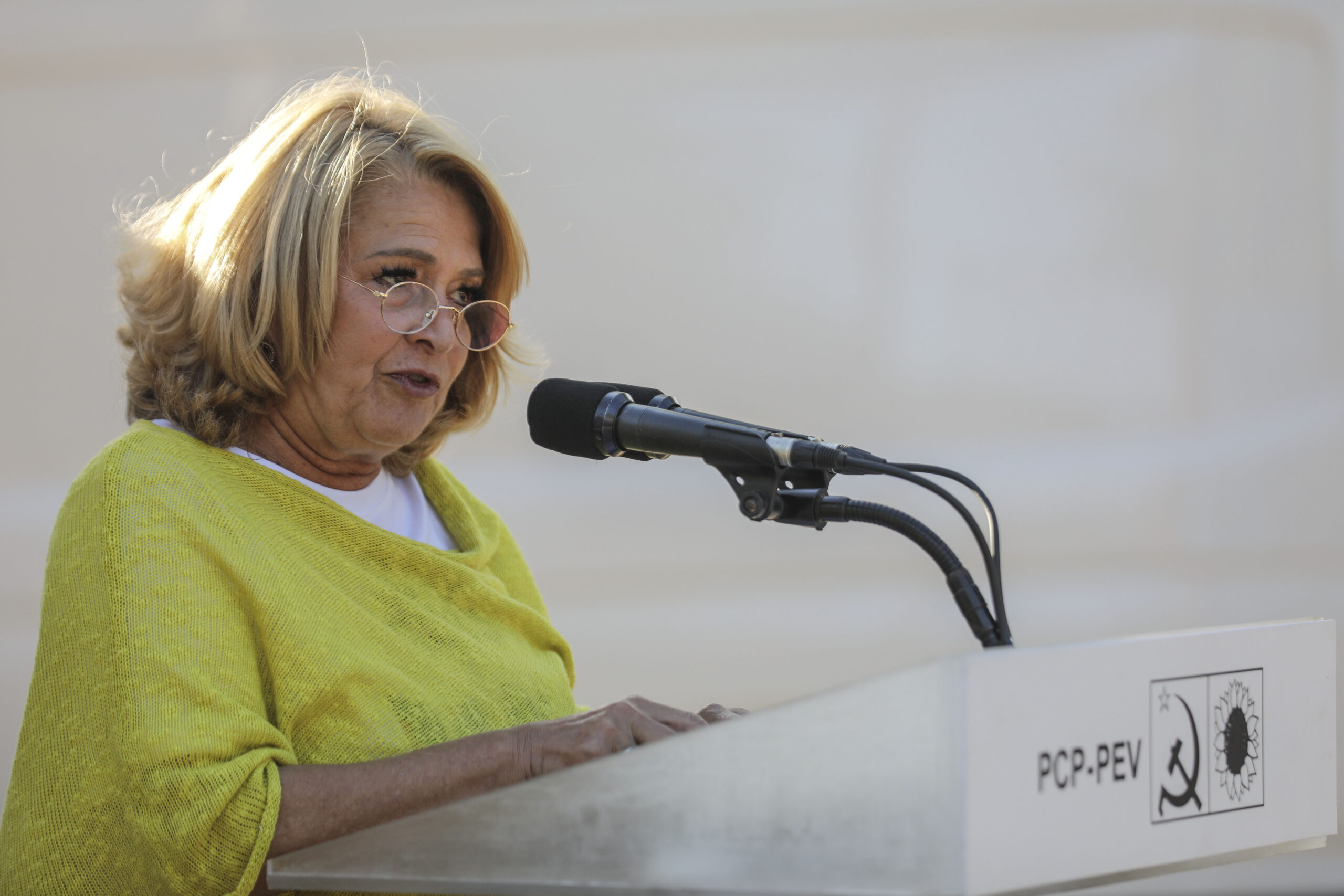
Despite Maria das Dores Meira's brilliance in her victorious electoral campaign in Setúbal, and her recognition as few others do on the streets of her hometown, the people of Almada reinforced Medeiros's power in 2021.
The communists started with 24 local authorities and ended with 18 , with two more major defeats in Greater Lisbon, Moita and Loures.
In the leadership debate, Maria das Dores Meira even edged up slightly in the vote against her comrade Joaquim Judas, but Inês Medeiros increased her vote by 35%, while the right-wing party led by the PSD and CDS shrank. After the former mayor of Seixal, defeated in Almada in 2013, it was the former mayor of Setúbal who was defeated by Inês de Medeiros .
Joana Mortágua, a member of the Left Bloc, and Nuno Matias, a member of the Social Democrat Party, were elected councilors, but in a weakened state . The former was unable to secure a majority for the Socialist Party (PS) or the Portuguese Communist Party (PCP). Matias, the leader of a candidacy that had Maria Luís Albuquerque, Vítor Gaspar's successor in the Passos Coelho administration, alongside him as head of the Municipal Assembly, failed to even replicate the 2017 result. That year, the PSD ran alone and, in the country, had its worst municipal performance ever.
Additionally, Manuel Matias, father of current Sintra candidate Rita Matias, emerged, leading Chega to a close vote with Joana Mortágua . The party leader's sister is leaving the city council this year, with the Left Bloc relinquishing a council seat where it had been holding elections. The coalition with Livre, led by Sérgio Lourosa Alves, was announced in August, after Rui Tavares's party had already announced its sole candidacy in mid-July, with a candidate other than the current candidate, Eduardo Raposo.
Chega's performance barely improved in the early legislative elections of January 30, 2022, but on May 18, it had already multiplied its performance by more than four times, to 21.5% of the Almada votes.
The population did not accept the words of communist Dores Meira, who criticized “four years of disastrous management by the Socialist Party” and denounced “a policy of regression and stagnation.”

This year, the Communists aren't fishing in other municipalities, but in a parish in Almada . Luís Palma, a 46-year-old teacher, is finishing his third term on the Laranjeiro and Feijó Parish Council. With him, the CDU retained its last remaining parish in Almada, but the Socialist Party (PS) garnered more votes in the City Council election.
A result far removed from the golden years of the communists, undisputed winners since 1976 and with consecutive absolute majorities from the 1990s onwards.
The PSD's strategy of bringing in former mayors is on the agenda this year . As he approached his term limit in Mafra, Hélder Sousa Silva headed to Brussels for the 2024 European elections. Now, he's caught a plane to Lisbon and crossed the bridge to the south bank .
Just like Inês de Medeiros when she ran in 2017, Hélder Silva, a native of Mafra and president of the Social Democratic Mayors from 2019 to 2024, is a stranger in Almada. Even today, Inês de Medeiros continues to live in Lisbon , which in 2021 earned her a scathing critique from her communist opponent, Dores Meira: "There are many workers who have never seen the mayor, who have never seen her in person. I find that incredible!"
The MEP acknowledged, in his candidacy, that the challenge is greater than that of Mafra, a safe haven for the orange party. The most the PSD managed was to receive portfolios in Inês de Medeiros's administration, until, a year ago, they decided to withdraw support for the 2025 budget .
"We spent seven years making concessions to the Socialist Party. It was in the name of stability, but it's worthless if we can't work for the people. The PSD's proposals are always ignored or delayed," complained Paulo Sabino, president of the Almada PSD council, in a statement sent to Lusa. He was re-elected to the party's local leadership a year ago, on a competing list with the councilor elected in 2021. Sabino is now number two on Hélder Sousa Silva's list.
Inês de Medeiros responded at the Municipal Assembly that the responsibility lay with the Social Democrats, who had not submitted proposals in time to be included in the budget, despite the mayor's own phone call. " To be able to make commitments, there must be compromise proposals ," stated Medeiros, who, with this split, lost majority support in the penultimate of her eight years in office.
Paulo Sabino is confident in the candidacy he is part of: “ There is no doubt: we have brought a proven professional to take care of Almada !”
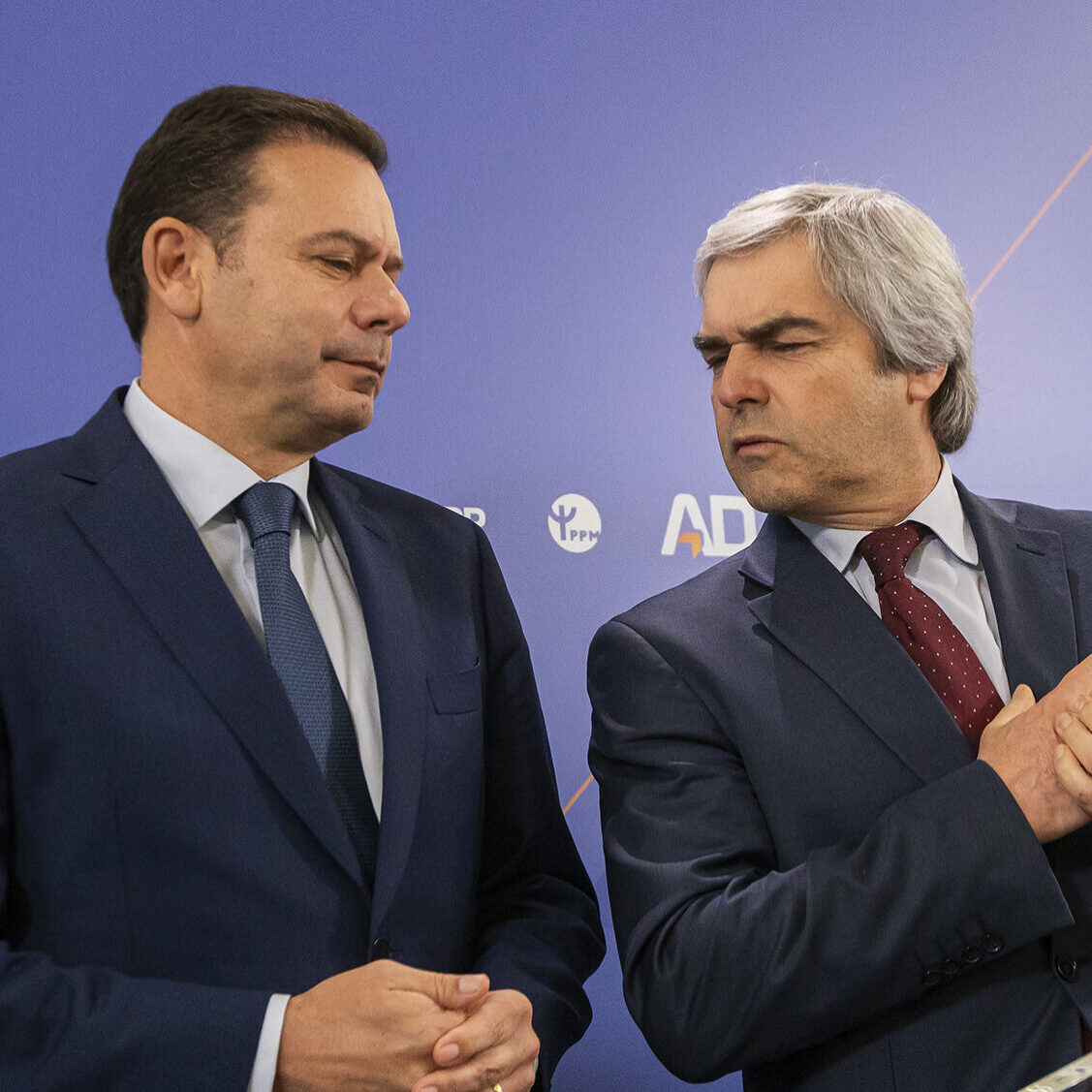
On the right, the CDS, once again split from the PSD , is voting for Ana Clara Birrento, the party's vice-president. Speaking to Lusa, she says she sees a city with "great potential and that it can't just be the other side of the river, where people commute to and from, causing serious problems in terms of transportation and mobility." On the same political spectrum, the Liberal Initiative is presenting Carlos Alves, who wants to "accelerate Almada."
Further to the right, Carlos Magno, a militant since the founding of Chega and its deputy secretary-general, is running for election under the slogan "Almada without fear" and is running a deputy in São Bento as his candidate for president of the Municipal Assembly.
In the October 12th election, Inês de Medeiros leaves with a broken connection to the right during the last of her eight years in office, facing a PCP that has always been hostile to her in Almada and the unknown strength of Chega, which, even without clear signs of victory, could create a new balance of power in Almada's city council. It remains to be seen what the combined value of the Left Bloc and the Livre party is, combining the former's local strength with the latter's national electoral growth.
ECO-Economia Online





